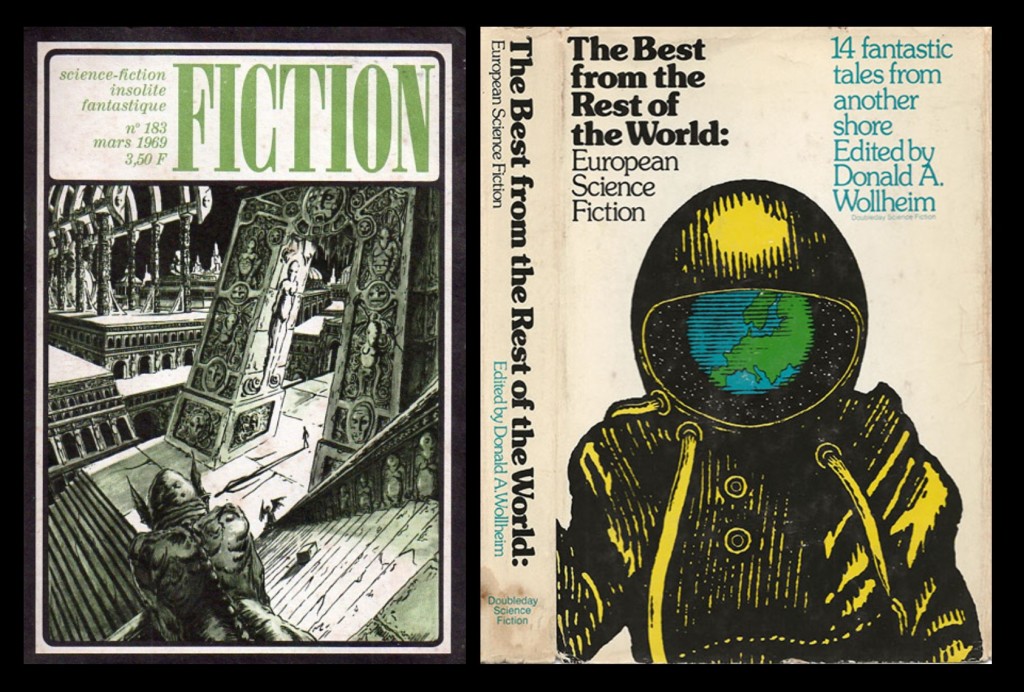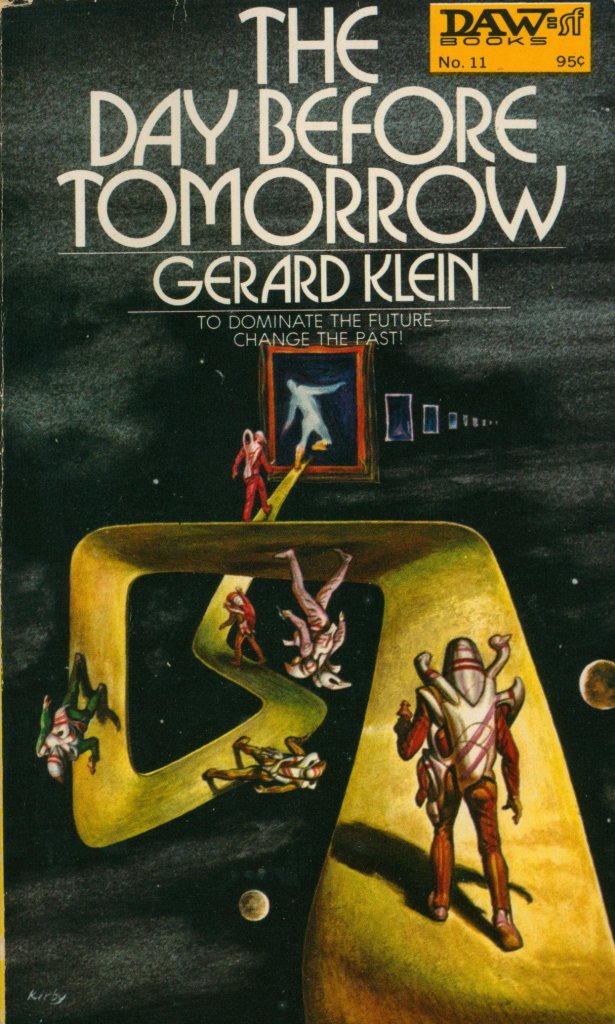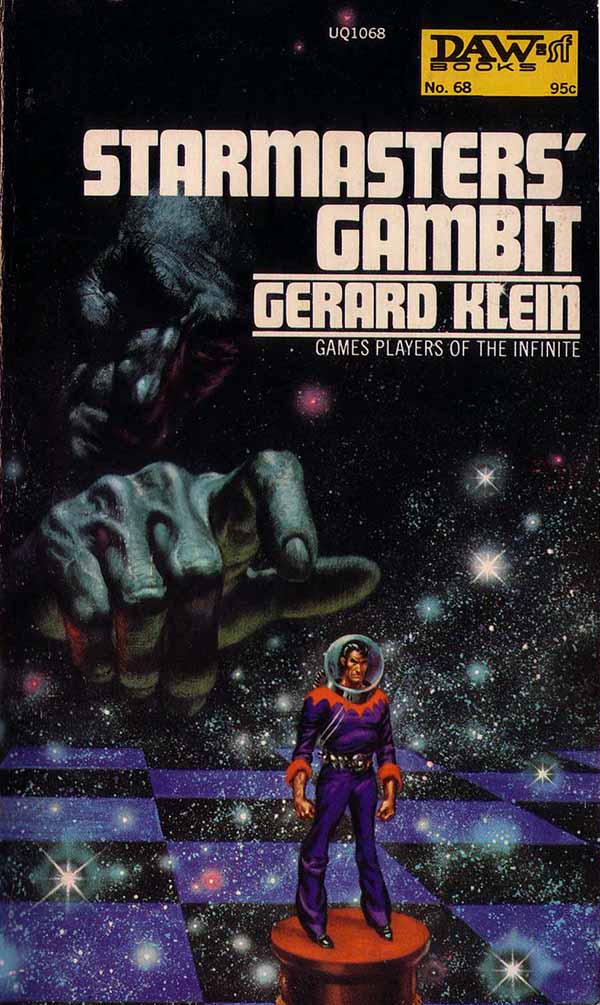
“Party Line” by Gérard Klein is story #49 of 52 from The World Treasury of Science Fiction edited by David G. Hartwell (1989), an anthology my short story club is group reading. Stories are discussed on Tuesdays, Thursdays, and Saturdays. “Party Line” was first published in French in Fiction (March 1969). It was translated into English in 1976 for The Best from the Rest of World: European Science Fiction edited by Donald A. Wollheim.
This is the second appearance of Gérard Klein in The World Treasury of Science Fiction. See my earlier review of “The Valley of Echoes.” After I read that story, I bought two of Klein’s novels, but I haven’t read them yet. I’m not sure I would have done that after only reading “Party Line.” However, one of those novels, The Day Before Tomorrow has a blurb that could fit with “Party Line” — “To Dominate the Future — Change the Past.”

“Party Line” uses one of my favorite science fictional concepts — having a future older-self influence a younger-self. Jerome Bosch is working in his office when he receives two phone calls on two separate phones. The phone in the left hand tells him he’s going to receive a terrific opportunity, and the one is the right warns against taking it.
Jerome Bosch is also a writer. He fantasizes at work about having all his time free to write. And I must wonder if Klein was working in his office one day, daydreaming this idea about himself and deciding to work it into a story. At first, it felt like “Party Line” was something Philip K. Dick would write. But then the dominant mood of the story shifted to indecision, paranoia, and fear, which is still PKD’s territory, but the story felt weirdly different, more like Kafka.
The first caller calls back and tells Jerome if he will only do what he says, his books will be made into movies, he will become rich and famous, and have lots of women. Then the other caller calls back and tells him something terrible will happen. For the rest of the story Jerome can’t decide.
I liked “Party Line” until I got to the end. Unfortunately, it’s one of those stories that promises a lot, but doesn’t know how to deliver on its promises. “Party Line” does have an ending, but one, I thought Klein had to scrounge up when he discovered he had painted himself into a corner.
I wrote an older self advises younger self story when I was at Clarion West. The problem is people seldom take advice. I wondered if someone would take advice from themselves. Klein complicates the idea by having two versions of his future self give him advice. That created a lot of tension for the story, but I wonder if “Party Line” would have been better if Jerome had only gotten one phone call from the future. How many people would jump at getting everything they wanted if they got a message from their future self?

The idea of an older version of a person trying to influence their younger self is a challenging problem for writers. David Gerrold did an excellent job with it in The Man Who Folded Himself. But to fully explore the idea, I think people should read Replay by Ken Grimwood. It’s not the same exact idea, but it works out the same philosophical problem. The idea needs novel length to work out.
I believe my disappointment with “Party Line” is because Gérard Klein should have made it into a novel and worked out a satisfying ending. However, I might reread “Party Line” in the future and see it differently. Maybe my future self will understand it better.

James Wallace Harris, 8/26/23
One thought on ““Party Line” by Gérard Klein”